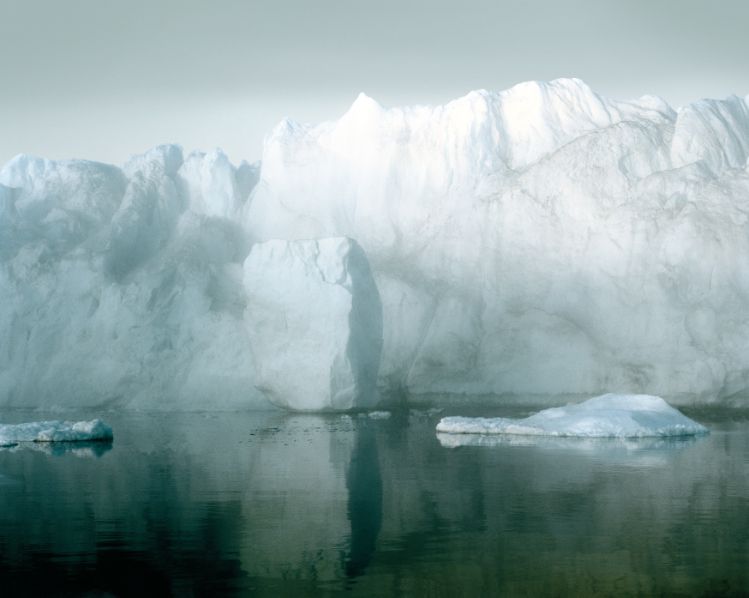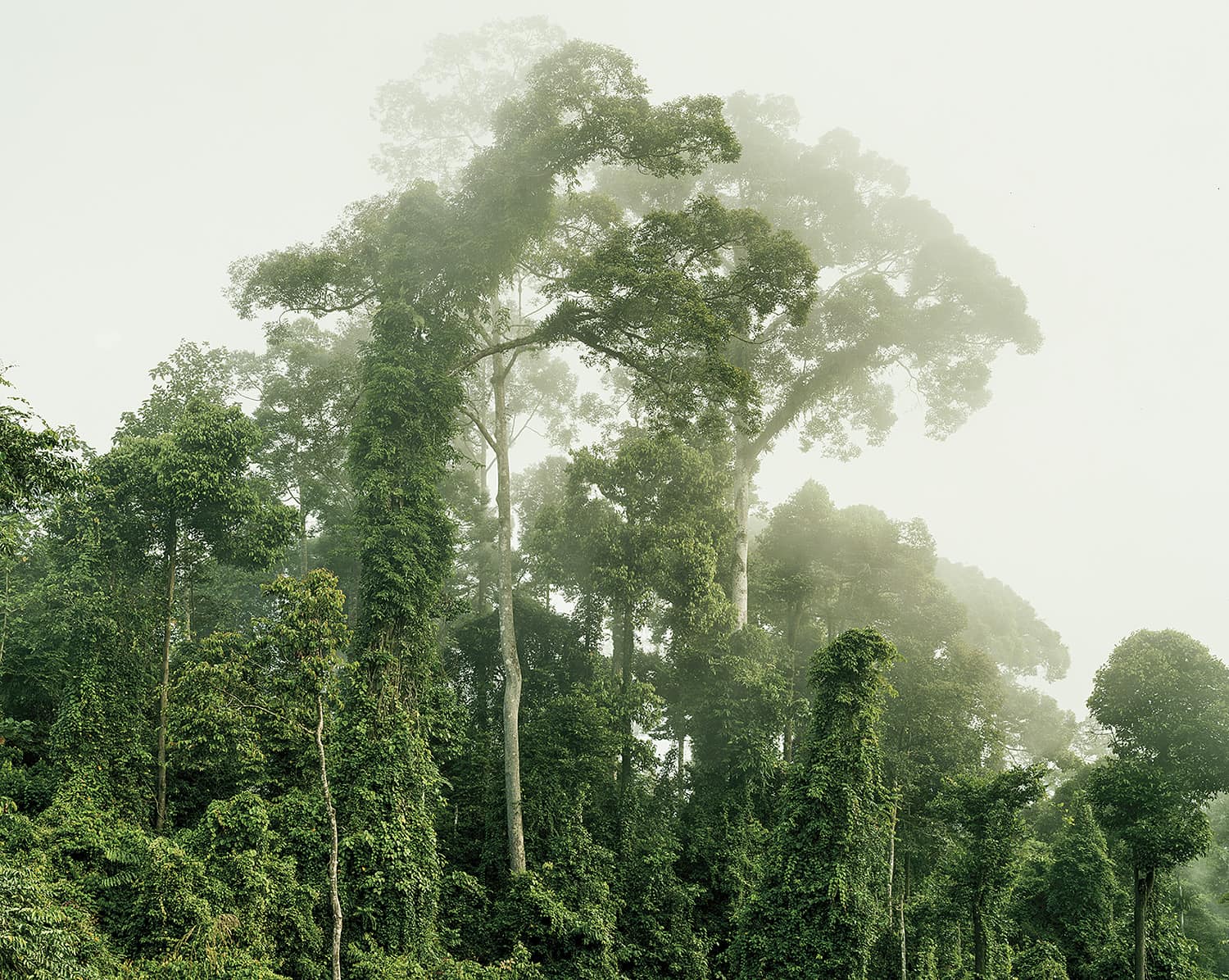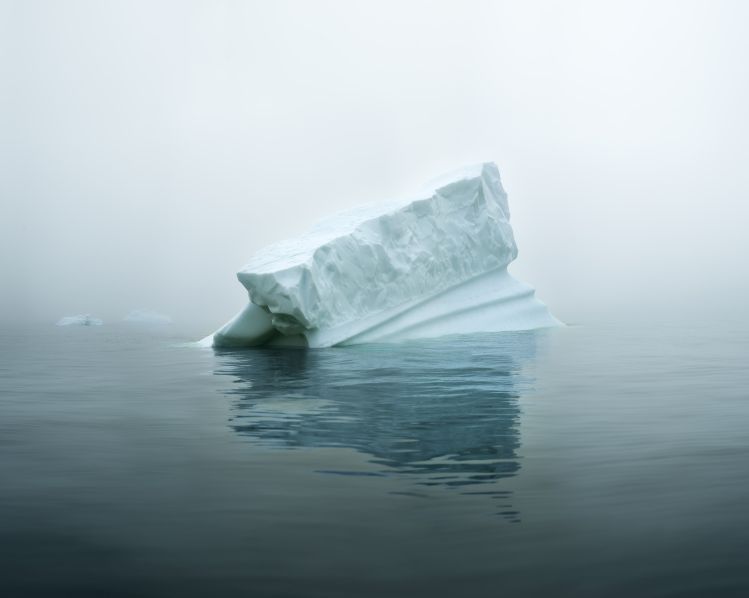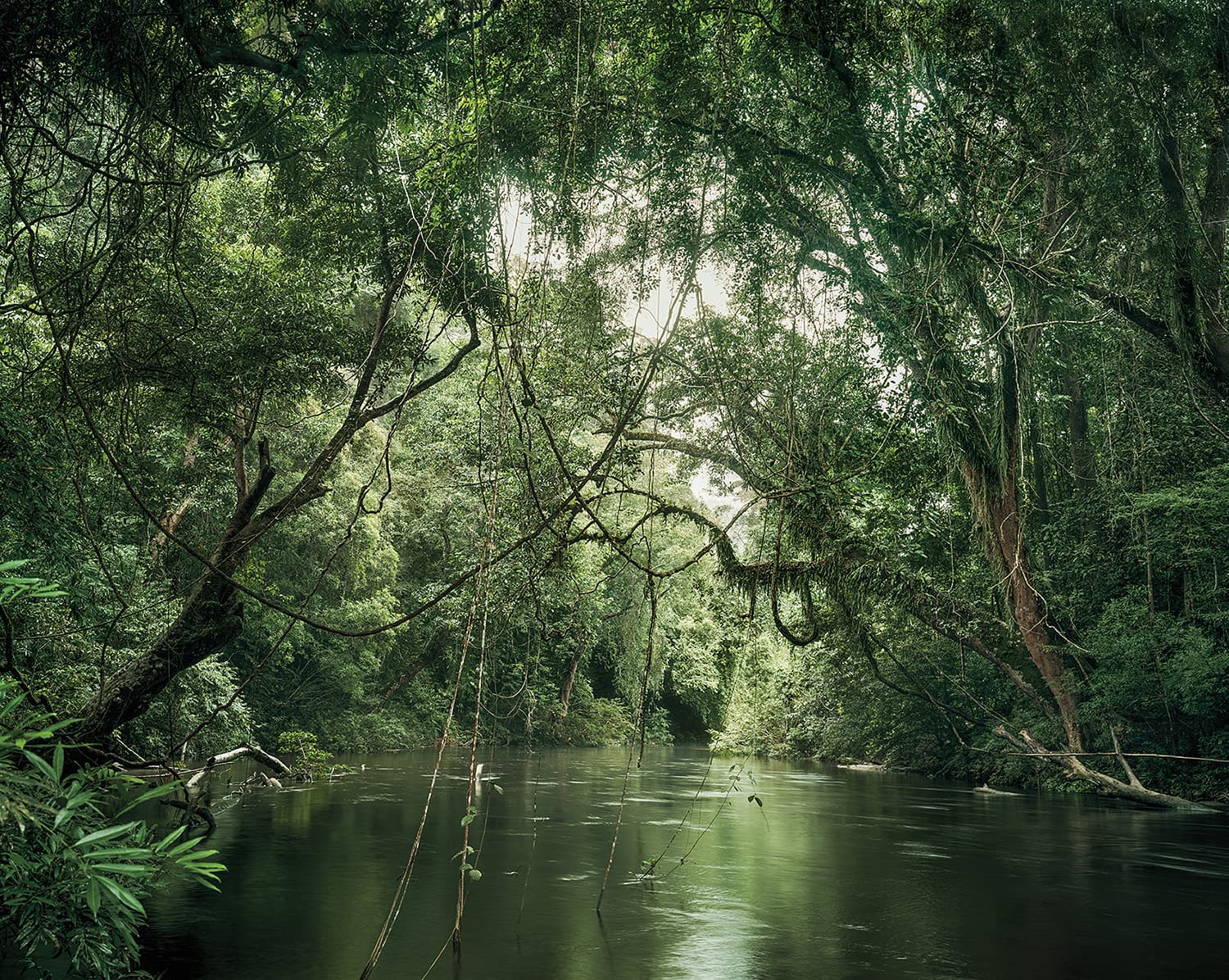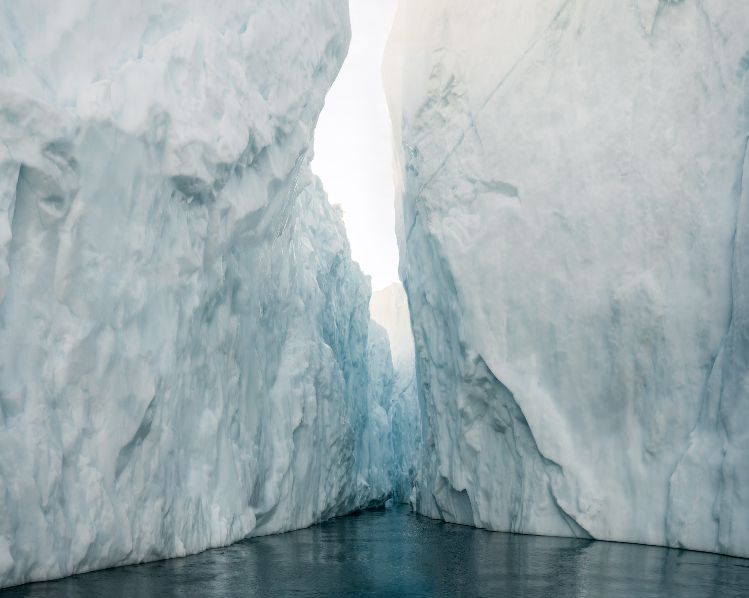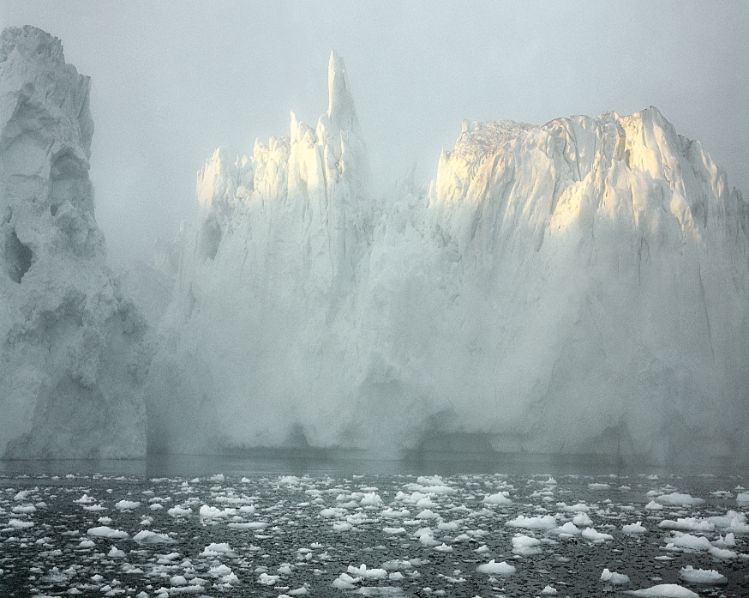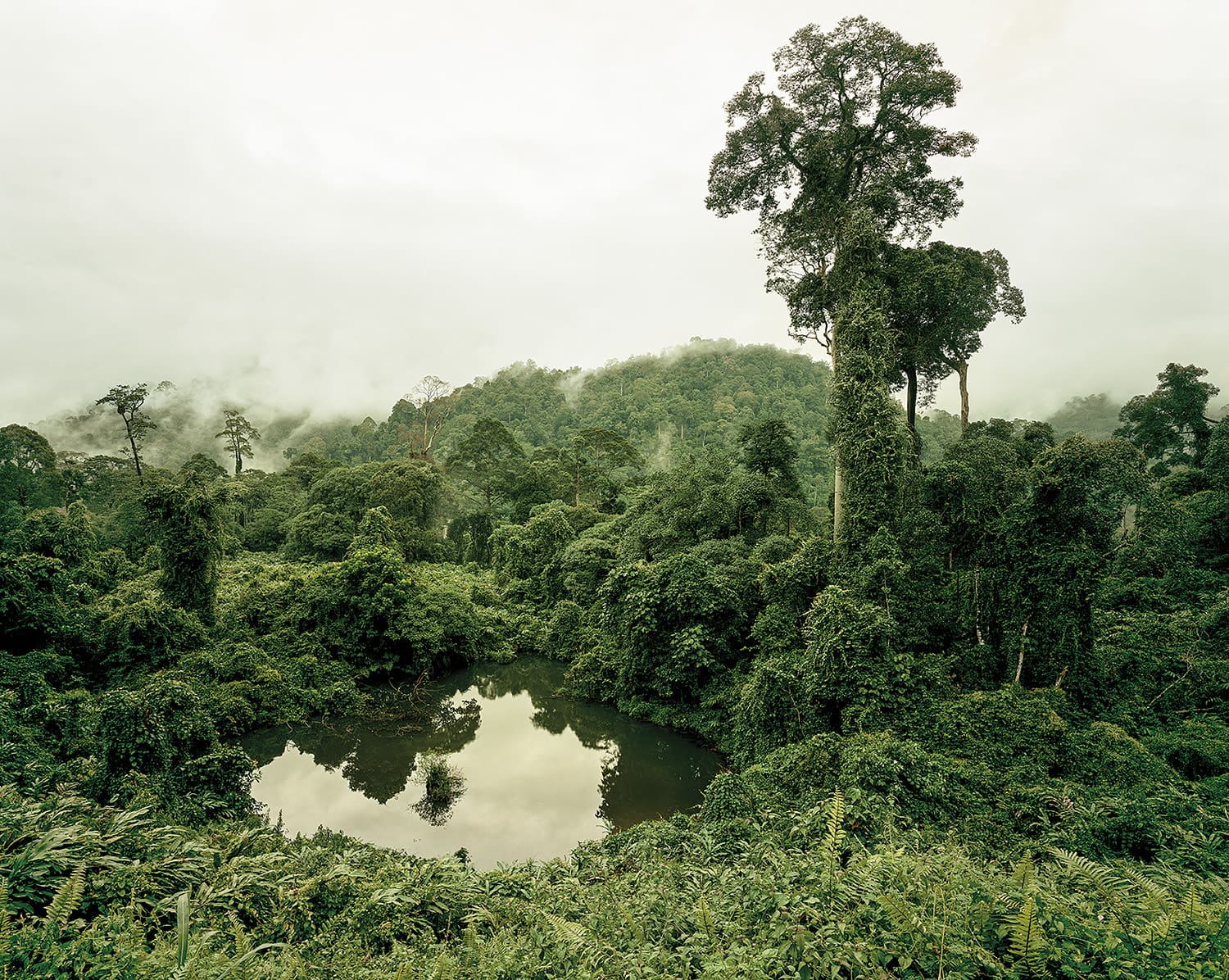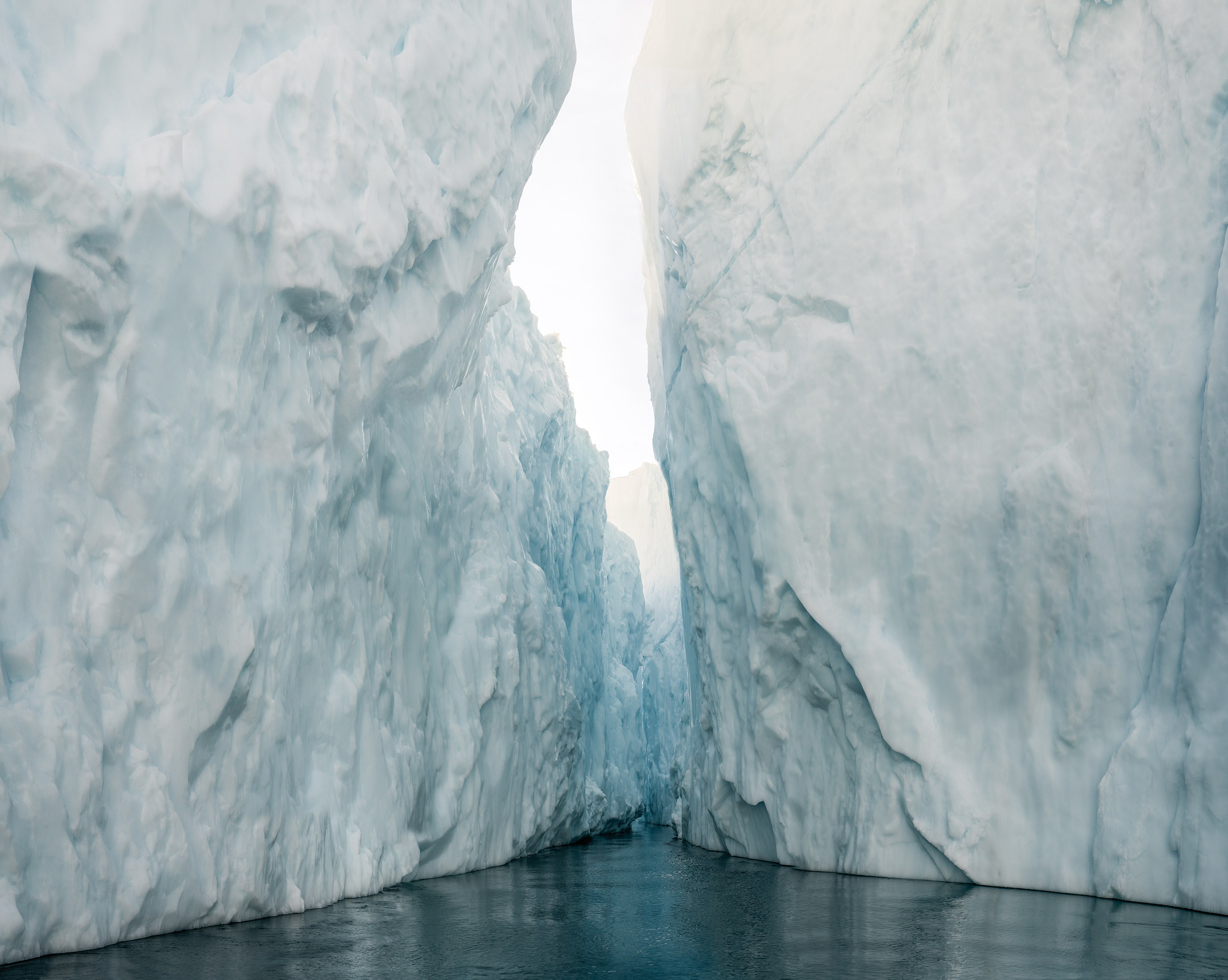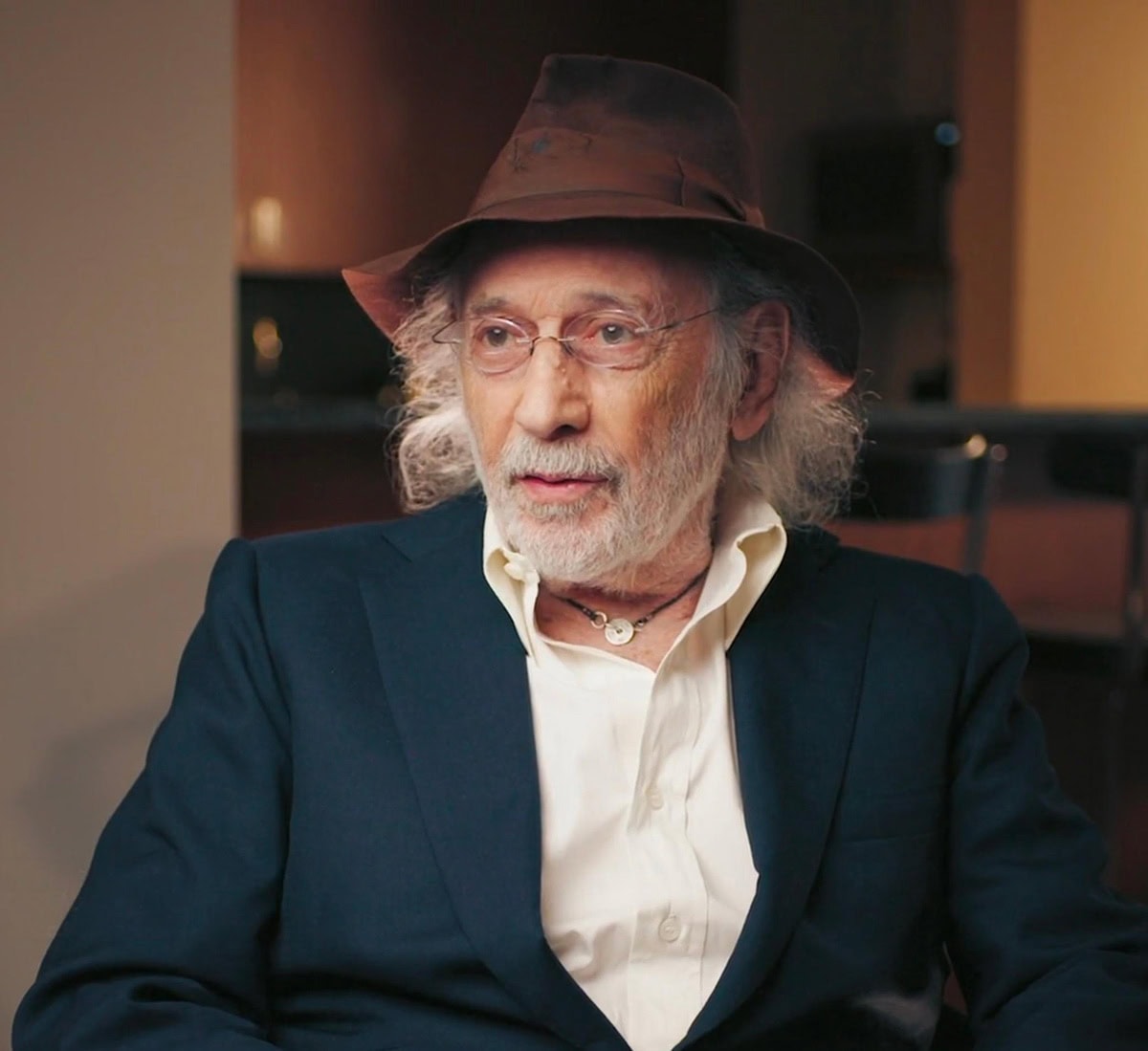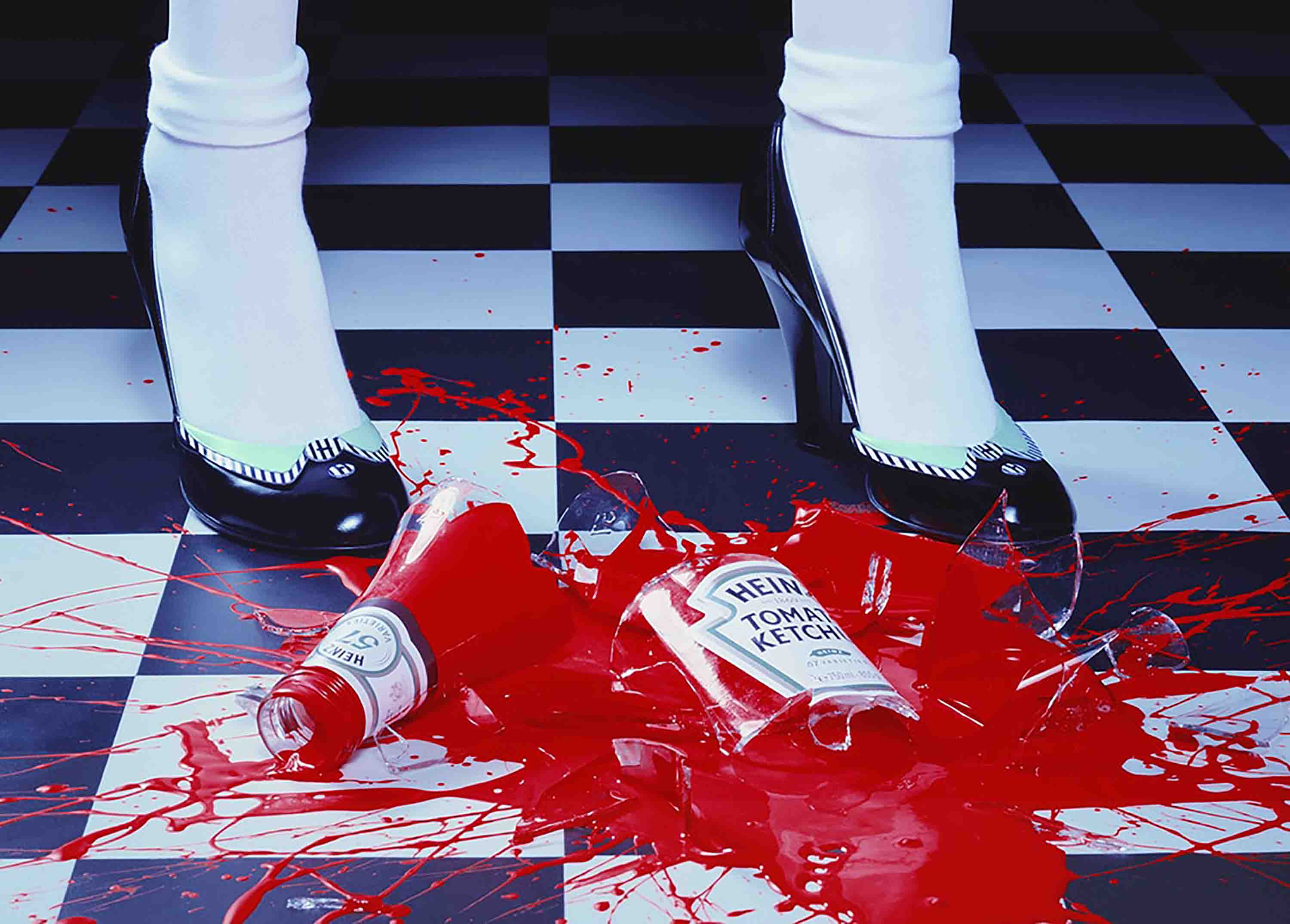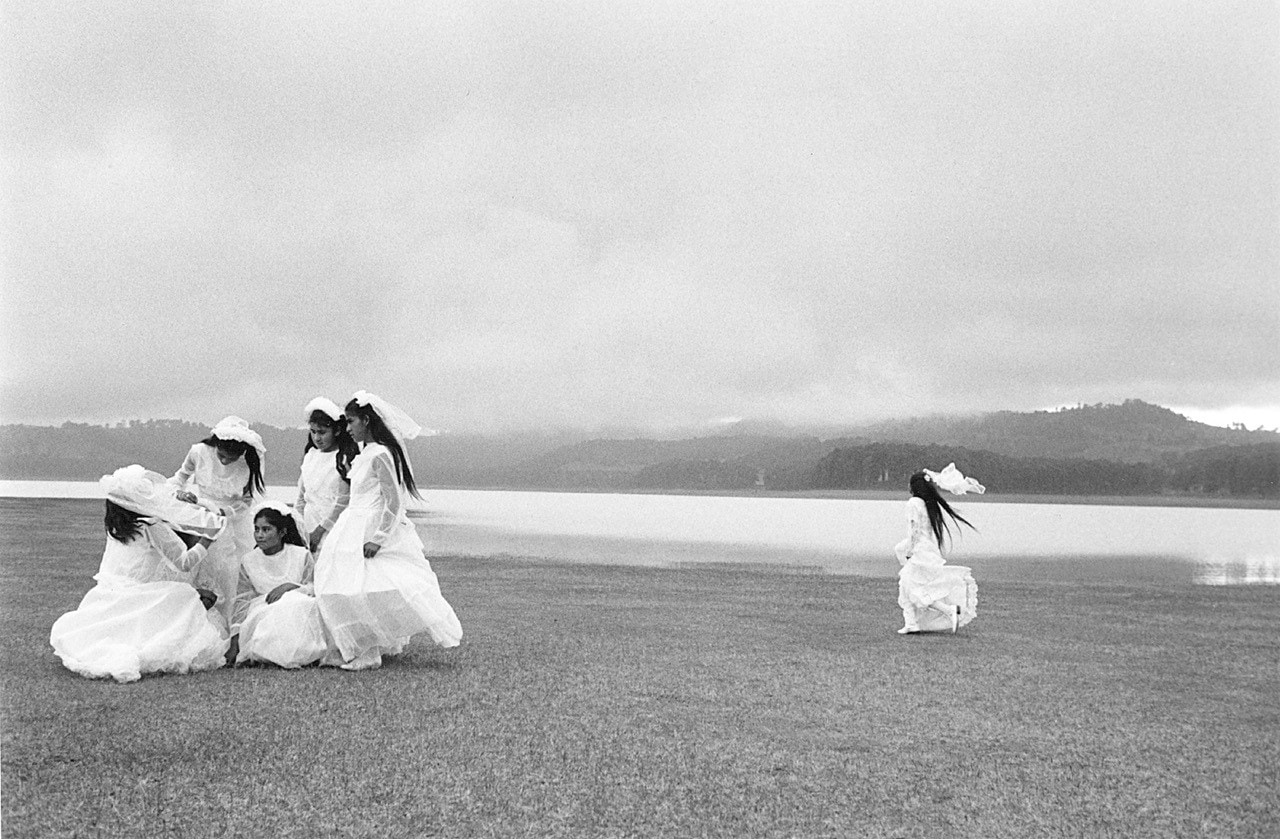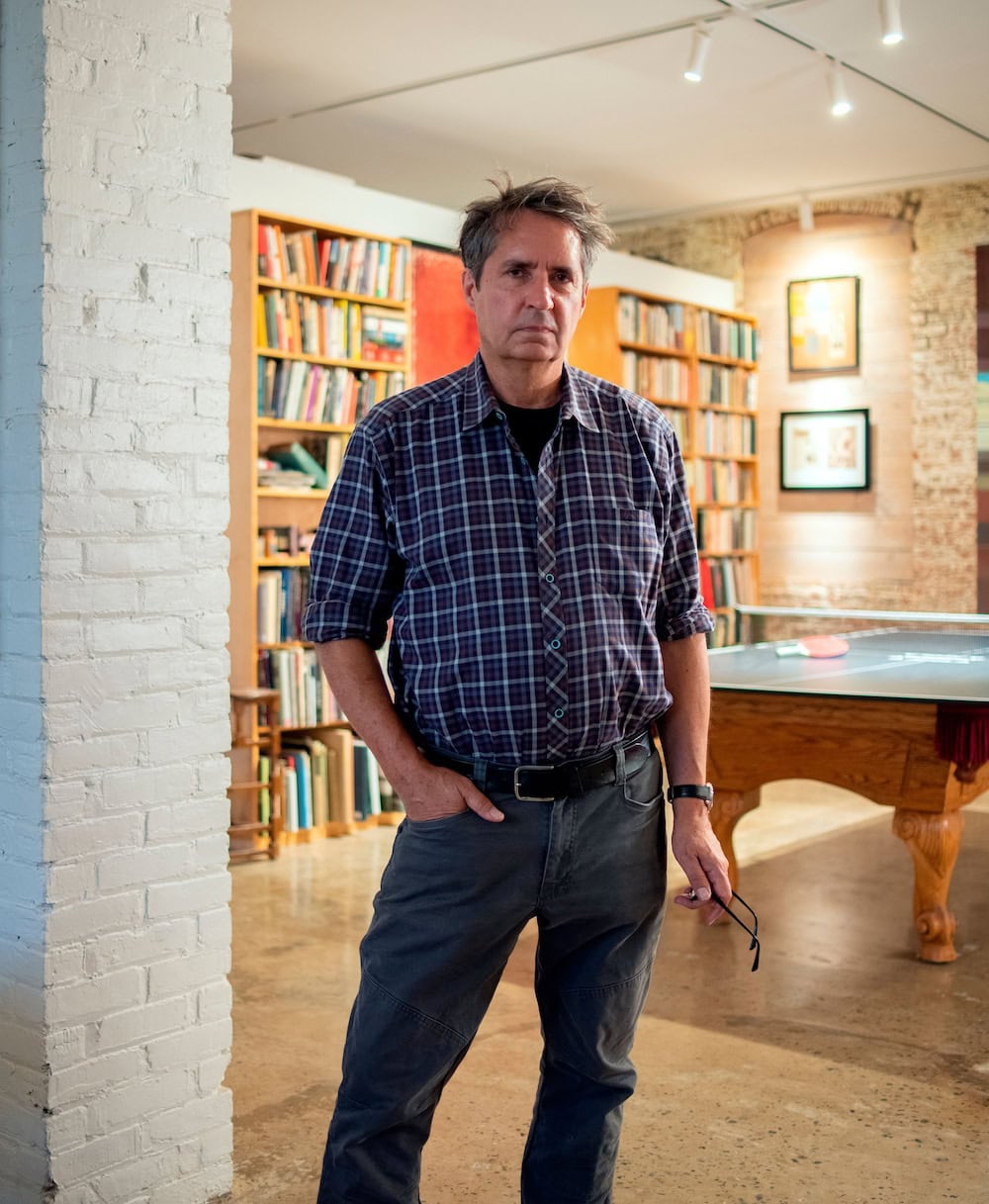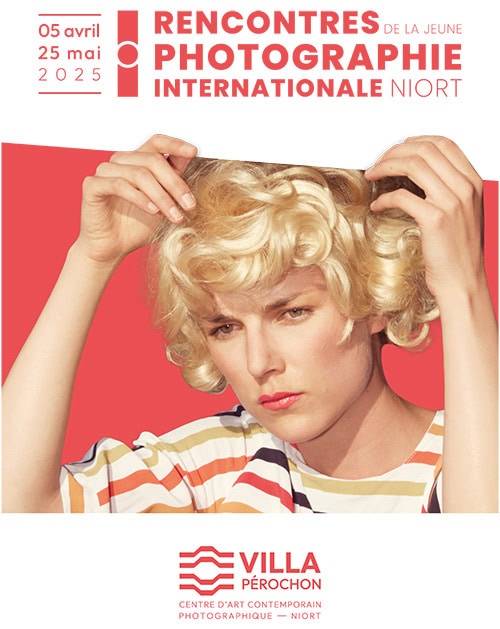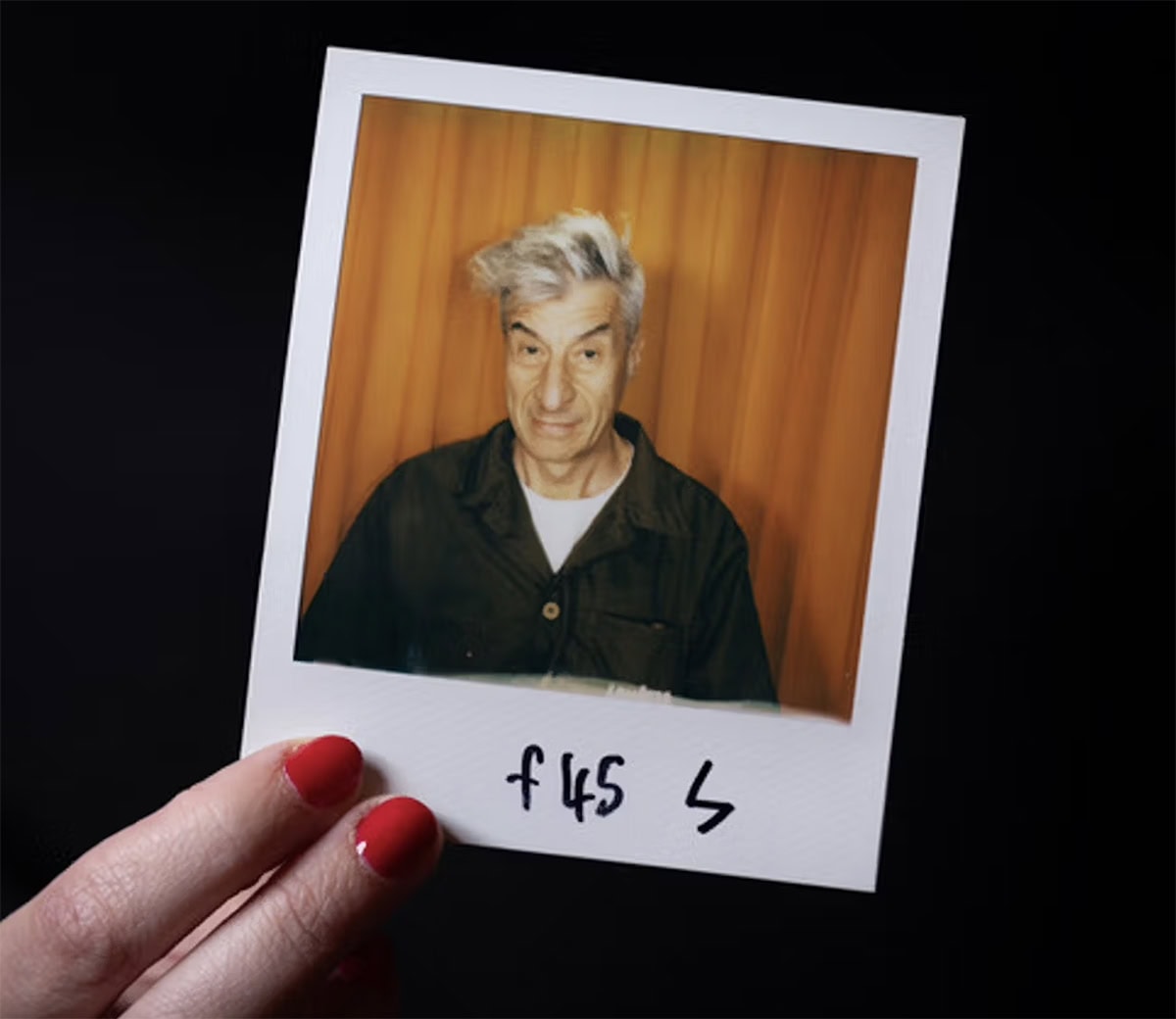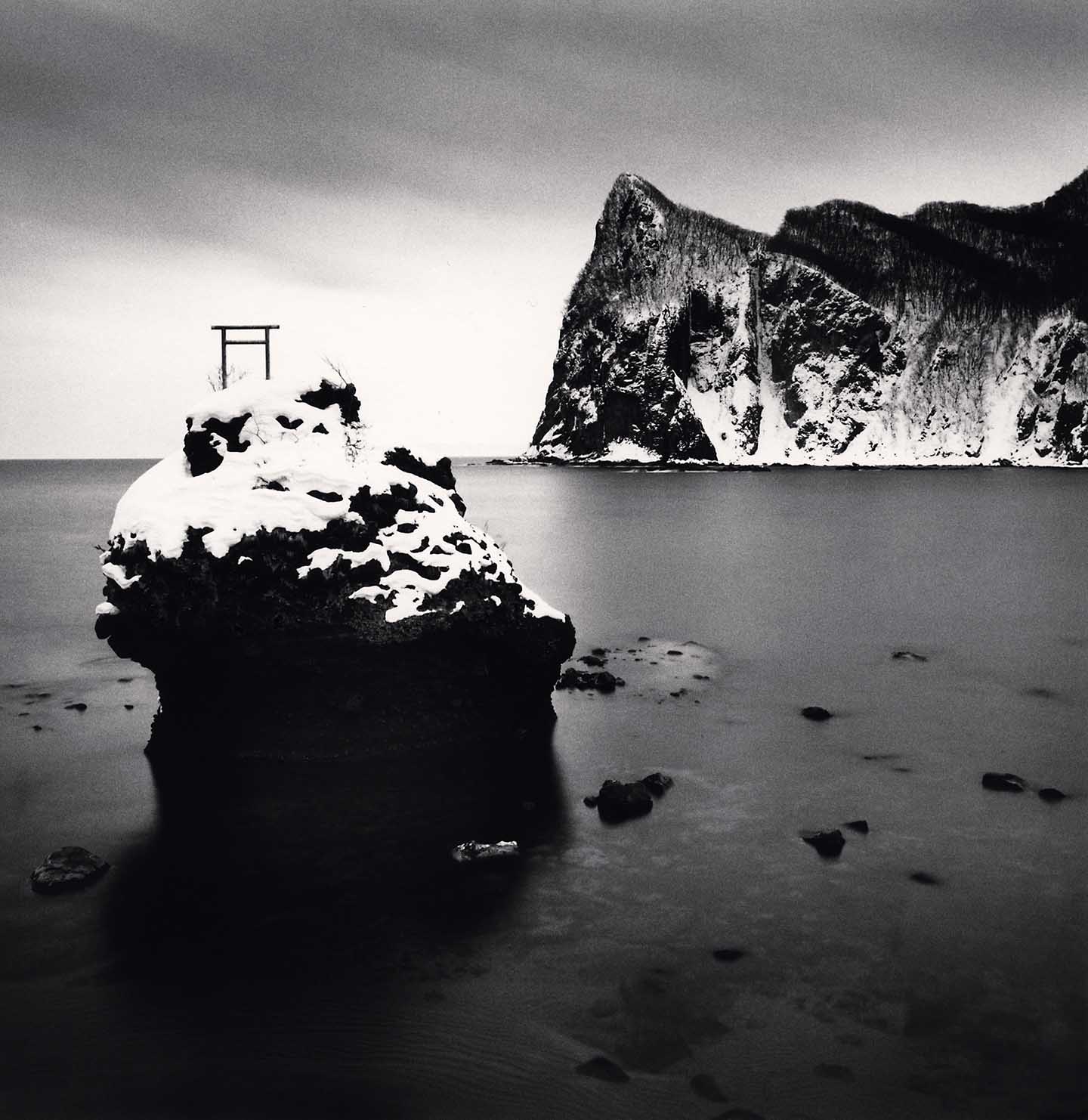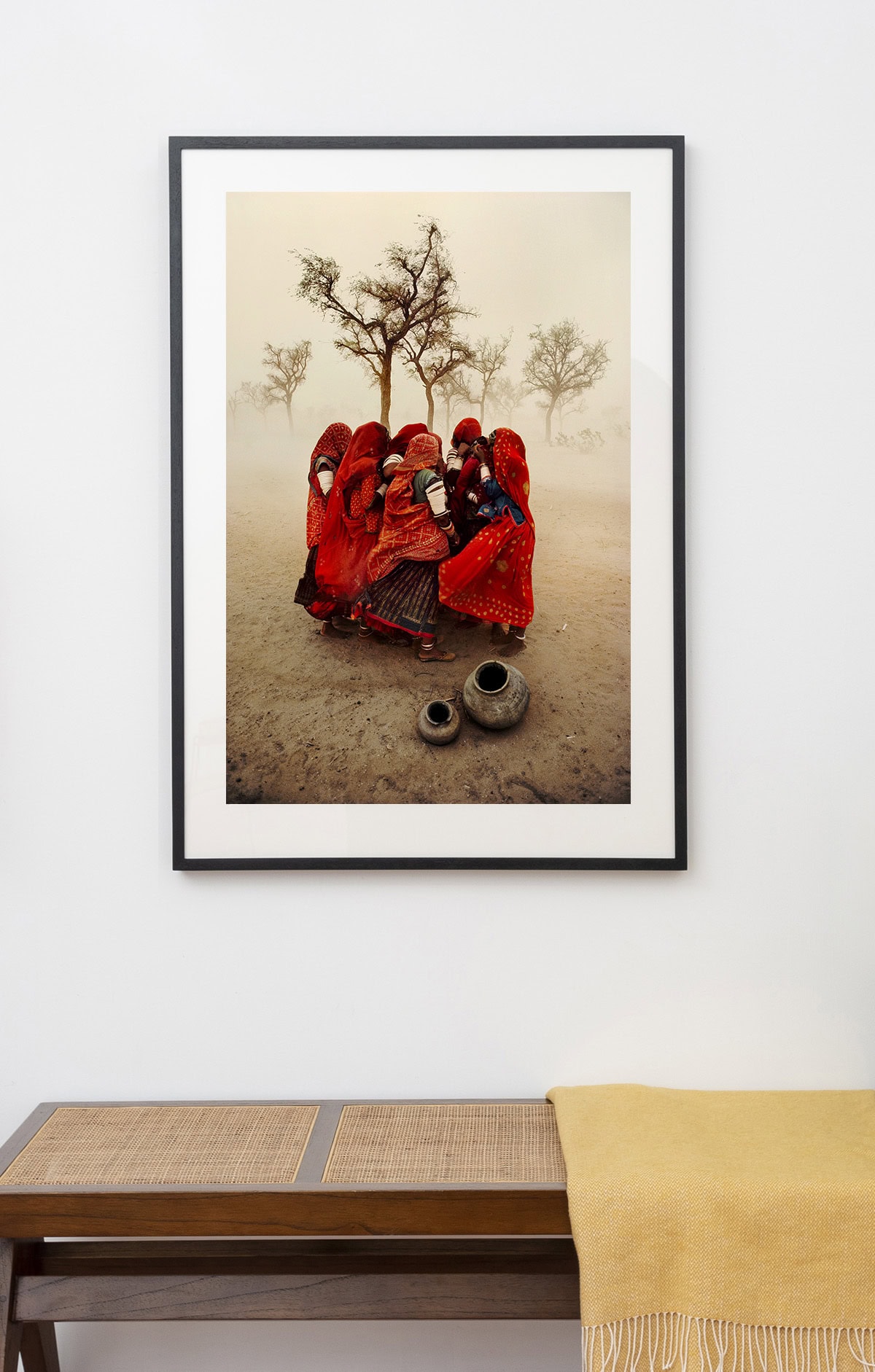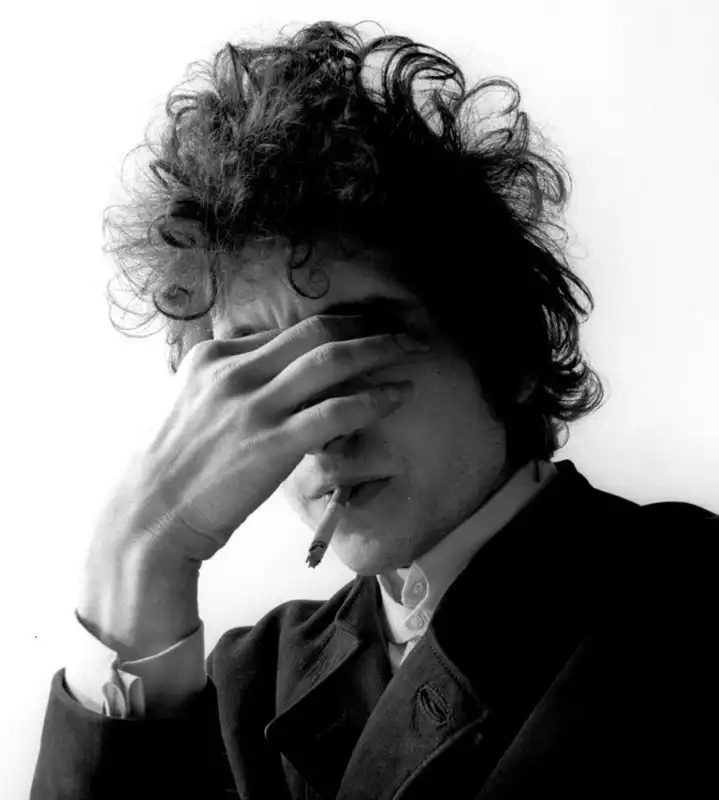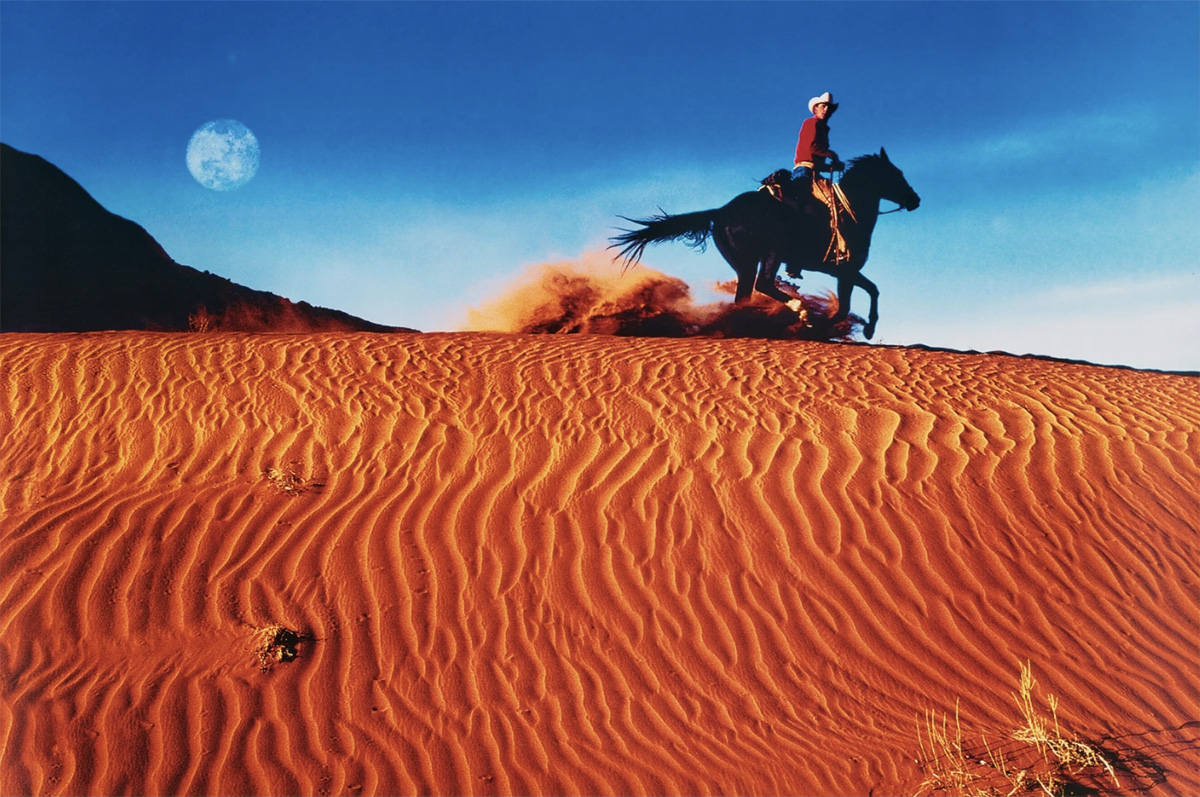Olaf Otto Becker: The Broken Line
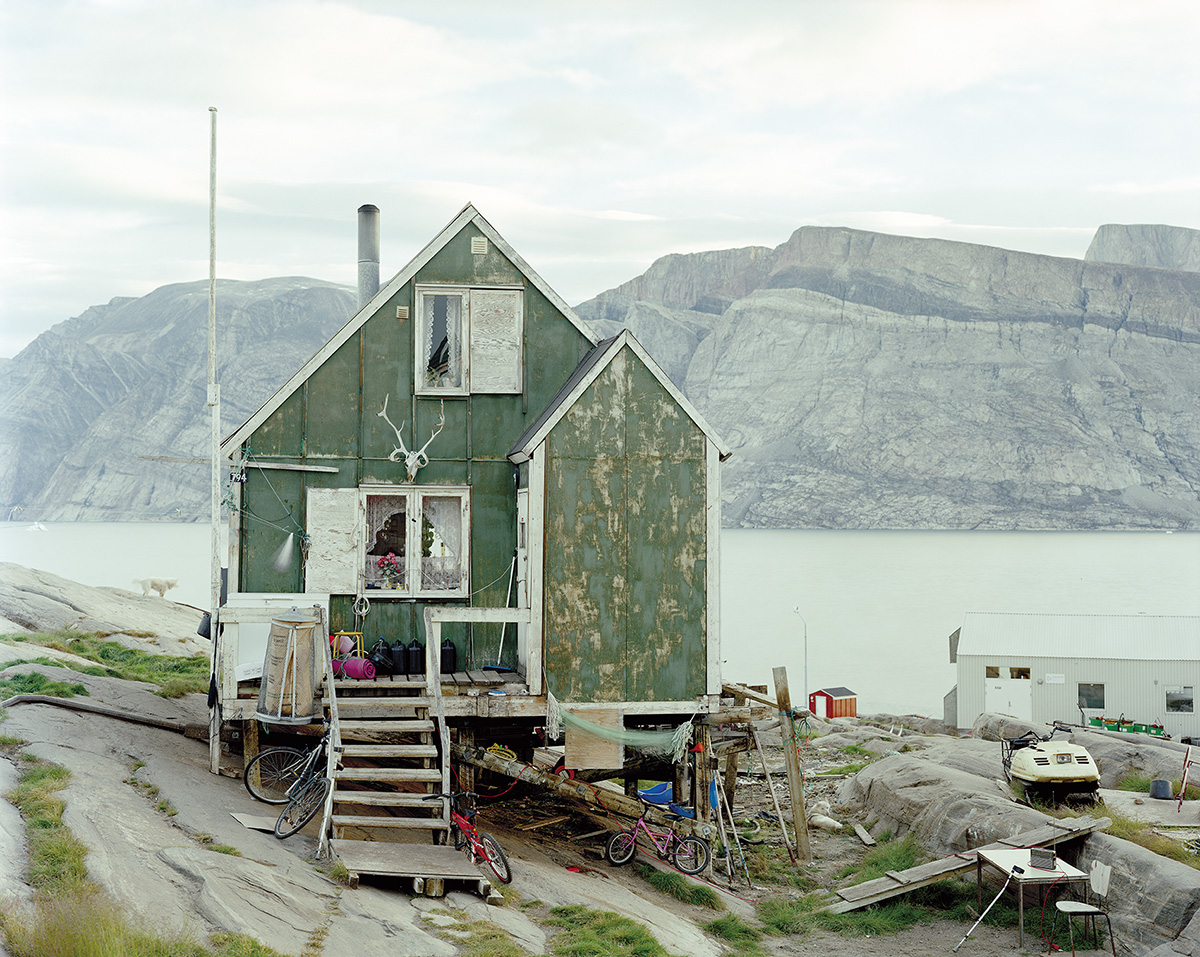
For over thirty years, Olaf Otto Becker (b. Germany, 1959) has been documenting the impact of human activity on the natural world. He has travelled extensively through Indonesia and Malaysia, photographing the disappearing rainforests in these countries, but Becker is best known for his photographs taken north of the Arctic Circle. For several projects in the far north—in Iceland, Siberia and Greenland—Becker has travelled to incredibly inhospitable environments where the destructive influence of human activity is dramatically visible. ‘Broken Line’, which was mostly shot on the western coast of Greenland, was not the first such trip. It was, however, arguably the first project to bring Becker international recognition and whose message was appreciated by mass audiences.
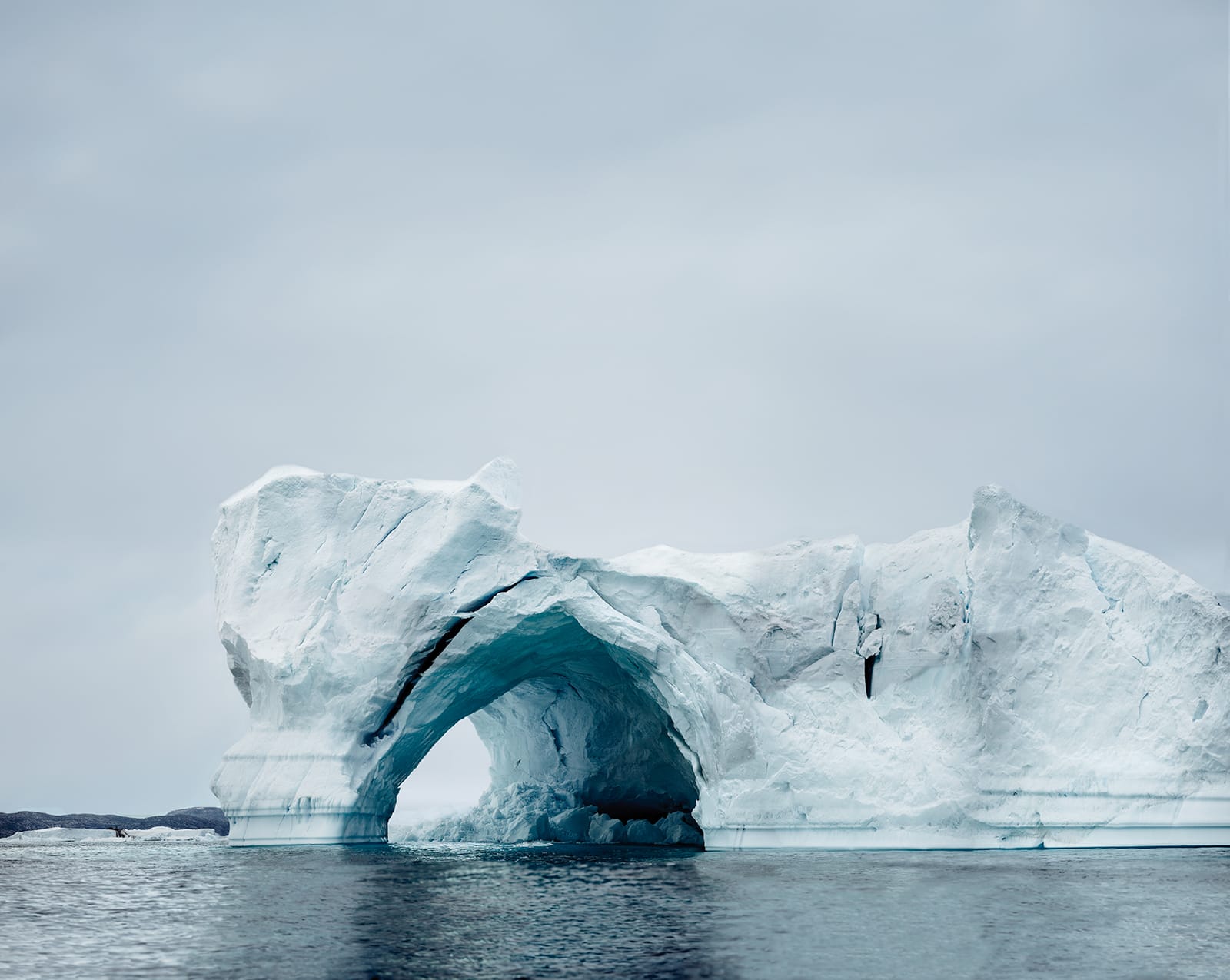
Beginning in July 2003, ‘Broken Line’ was intended as a single visit to the Ilulissat Icefjord in western Greenland. It turned into a years-long piece of work, with fourteen subsequent expeditions to Arctic coastlines. These trips took him over 4000 km in a rubber raft, documenting the landscapes with a large format camera, using long exposure times to take photographs in the shifting light. Becker would work between 10pm and 5am, when light shone in summer. On one occasion his solo rubber vessel was struck by an iceberg sending him into the freezing water, breaking one of his ribs and causing a concussion.
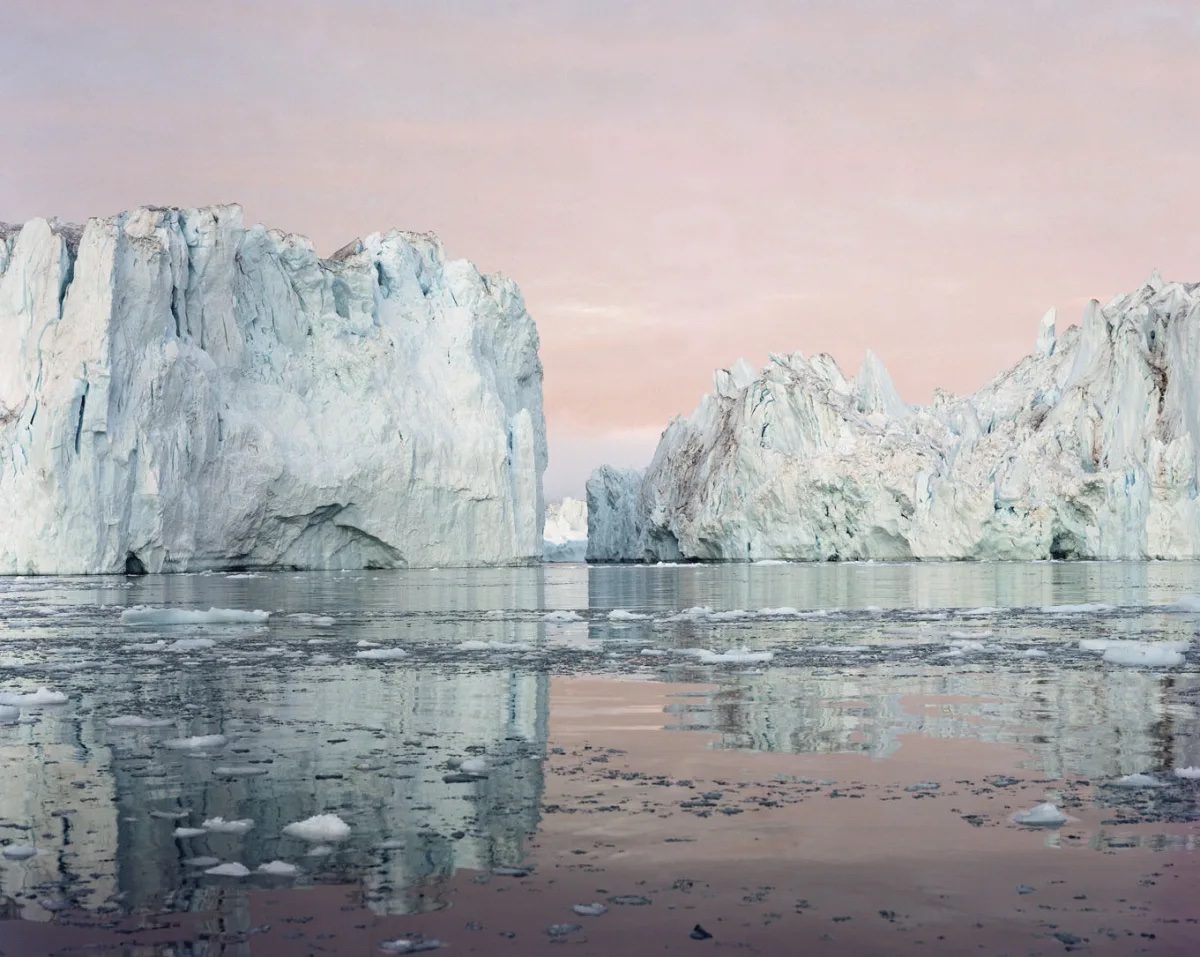
In ‘Broken Line’, Becker not only explores the drama and tragedy of crumbling icebergs and glaciers, but also looks at the relationship between these landscapes and the people who live there. He travelled to settlements like Nuugaatsiaq in the Avannaata province of Greenland where he photographed small, isolated wooden houses, often with brightly painted exteriors. Becker has described how “numerous houses in the village of Nuugaatsiaq were washed out to sea. The brittle rock is no longer held together by permafrost, so the danger of rockfalls has been increasing for years. The coasts of Greenland will rise significantly because of the melting of the tons of ice, while the rising sea level will literally drown some coasts. Everything will change.”
The photographs in ‘Broken Line’ capture this feeling of change and there is a sense of a landscape in flux. The power and the fragility of his chosen landscapes are evident; jagged towering icebergs appear out of a sludgy haze with a beauty and majesty. The thorough otherness of these incredible places will strike almost all viewers (those who did not grow up above the Arctic Circle), yet one feels that they are crucially connected to our own locales and lives.
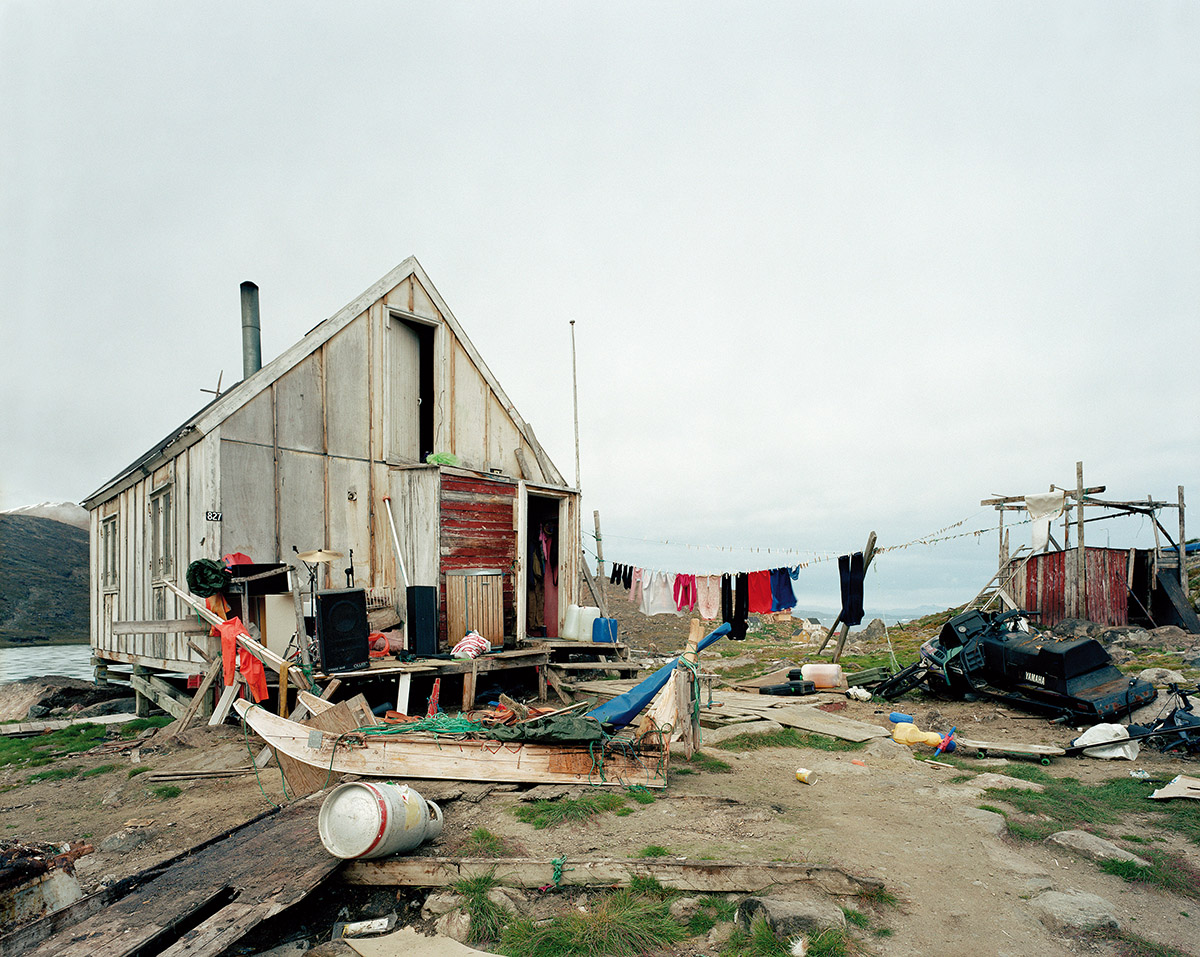
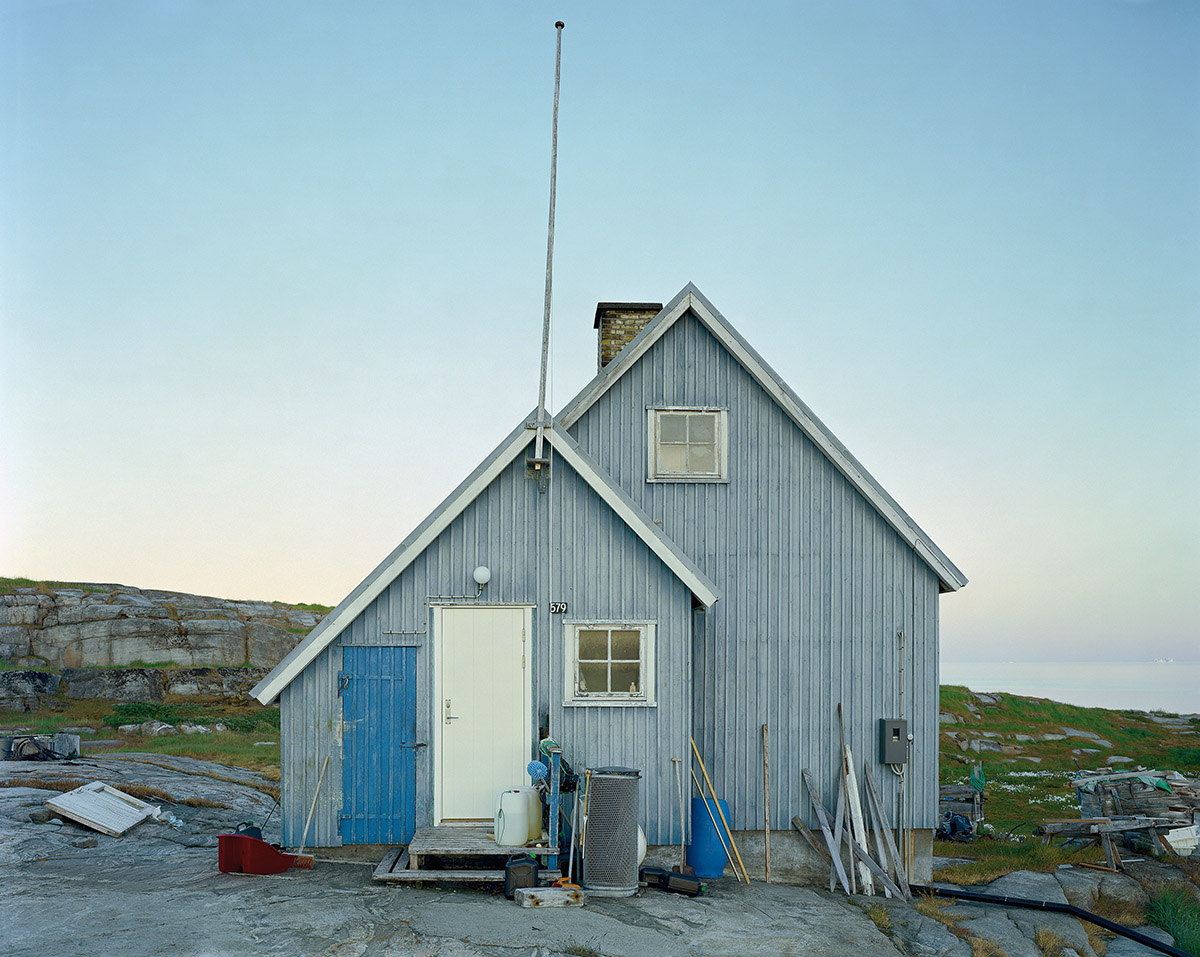
Simultaneously landscape photography and photojournalism, ‘Broken Line’ is a breathtaking and haunting depiction of an almost fantastical part of the Earth. While there is an aesthetic poignancy to the interplay of light, ice and water, the entire project holds a sense of tragedy and loss. While we may feel it important to appreciate the beauty of these landscapes as they crumble and melt away, their loss will have harmful and unpredictable consequences for life on Earth. As a metaphor for the crisis of our destabilised and warming planet, Becker’s work takes on a huge emotive force.
FeaturedOlaf Otto Becker

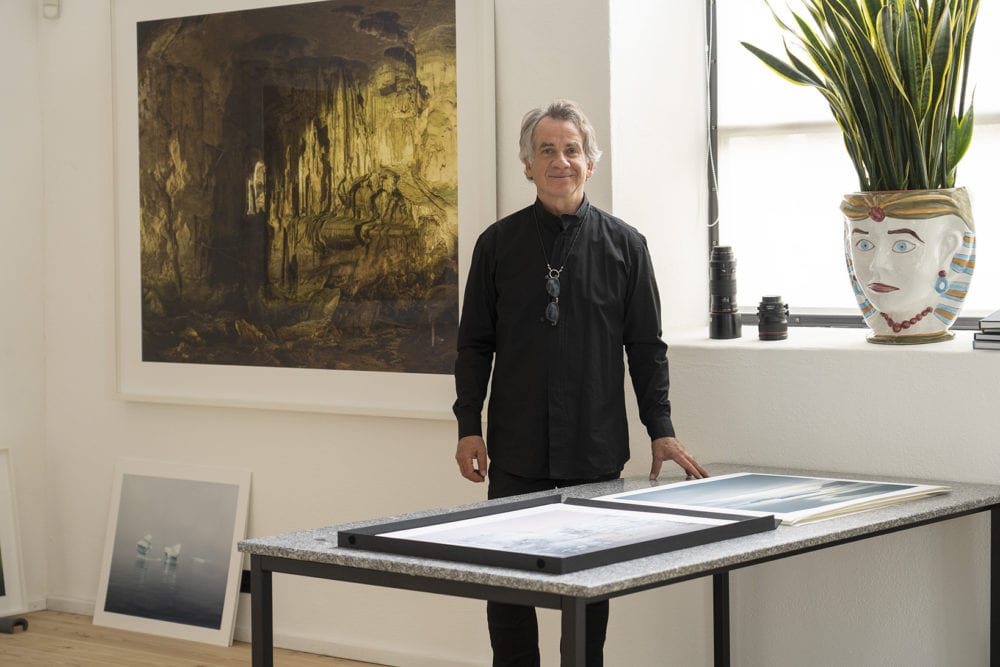
The ArtistFor over 30 years, Olaf Otto Becker has documented the changes inflicted on natural landscapes by human activity. Becker has photographed disappearing rainforests as well as the fragile landscapes of Greenland and the Arctic, making careful studies of icebergs and glaciers.
View artist page